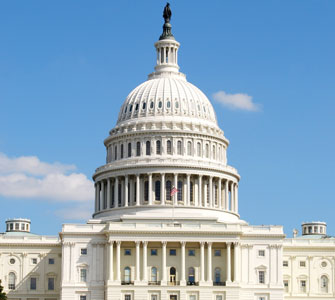 The United States Constitution was written on 4 pages in 1787. Now there are over 80,000 pages of regulations in the Federal Registry. In a time mired by fraud, waste, abuse, and corruption, in both the public and private sectors, an article by the Business Integrity Alliance argues that corporate directors who set higher standard for their companies could, conceivably, supersede those laws.
The United States Constitution was written on 4 pages in 1787. Now there are over 80,000 pages of regulations in the Federal Registry. In a time mired by fraud, waste, abuse, and corruption, in both the public and private sectors, an article by the Business Integrity Alliance argues that corporate directors who set higher standard for their companies could, conceivably, supersede those laws.
Their argument begins with Title 5: Administrative Personnel: Part 2635—Standards of Ethical Conduct for Employers of the Executive Branch:
Section 2635.101(a) Public service is a public trust. Each employee has a responsibility to the United States Government and its citizens to place loyalty to the Constitution, laws and ethical principles above private gain. To ensure that every citizen can have complete confidence in the integrity of the Federal Government, each employee shall respect and adhere to the principles of ethical conduct set forth in this section, as well as the implementing standards contained in this part and in supplemental agency regulations.
However, there is a caveat to the Federal Government’s Code of Ethics, which states:
Section 2635.106(c) A violation of this part or of supplemental agency regulations, as such, does not create any right or benefit, substantive or procedural, enforceable at law by any person against the United States, its agencies, its officers or employees, or any other person.
The solution, according to the article (Is the SEC’s authority at risk of being null and void?), is to seek a remedy at Equity, rather than at Law.
Equity is the name given to the set of legal principles, in jurisdictions following the English common law tradition, that supplement strict rules of law where their application would operate harshly. Therefore, if a U.S. Corporation can demonstrate that their Ethics Compliance system is designed and operating to a higher standard of fitness than that of the federal entity trying to regulate them, the constructive argument for qualified immunity is plausible, reasonable, and compelling. Of course, the U.S. Corporation must be willing to voluntarily disclose the fundamental data required to substantiate the fitness of their Ethics Compliance system, with relevant, reliable, and sufficient information…
The article goes on to list ”fundamental data” that would be “essential to form valid opinions regarding the adequacy of design and the effectiveness of operations within an Ethics Compliance system.”
Interesting line of reasoning. Creative at least. Please let me know of anyone who tries to make this argument for real.
To contact James McRitchie directly, please email jm@corpgov.net

















